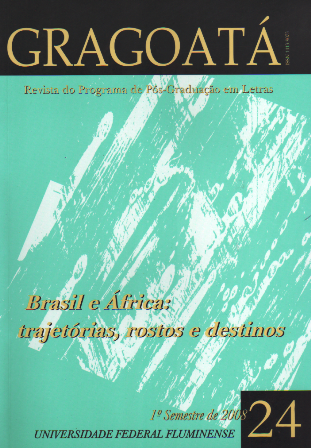Narratives, faces and expressions of the Mozambican post-colonialism in João Paulo Borges Coelho’s novels
Keywords:
Memory. Narrative. Postcolonialisms. History and fictionAbstract
Postcolonialism of Portuguese expression and language has been approached as an hegemonic element in the thoughts and ideas between the various former Portuguese colonies in Africa. However, we must be careful, when thinking about the post-colonial condition in an epistemological way, to equate, in a contextualized way, the cultural loci, the idiosyncratic aspects, and the historical and social conditions of the object of study. I intend to defy previous hegemony with this present work, proposing instead that there is, undoubtedly, a Mozambican post-colonialism, even if it is expressed in the Portuguese language. My attempt to break boundaries, to compile and analyse narratives, memories and manifestations of negotiating a Mozambican post-coloniality can be captured through the Mozambican author João Paulo Borges Coelho, namely through the novels As visitas do Dr Valdez, Crónica da Rua 513.2, and, more recently, Campo de trânsito. Departing from a contextualised reading and analysis, it thus remains for us to reflect on how and what fissures, margins, memories and faces have emerged from a Mozambique that searches for its nation, dreamt up and longed-for by the poet José Craveirinha.Downloads
Downloads
Published
How to Cite
Issue
Section
License
Authors who publish in Gragoatá agree to the following terms:
The authors retain the rights and give the journal the right to the first publication, simultaneously subject to a Creative Commons license CC-BY-NC 4.0, which allows sharing by third parties with due mention to the author and the first publication by Gragoatá.
Authors may enter into additional and separate contractual arrangements for the non-exclusive distribution of the published version of the work (for example, posting it in an institutional repository or publishing it in a book), with recognition of its initial publication in Gragoatá.

Gragoatá is licensed under a Creative Commons - Attribution-NonCommercial 4.0 International.











